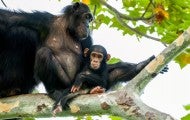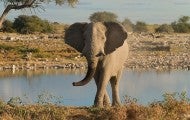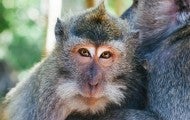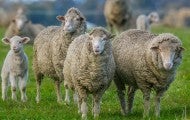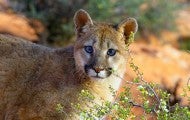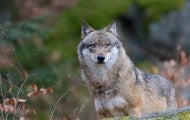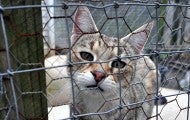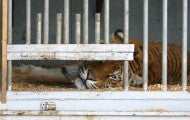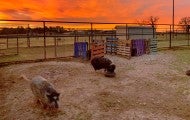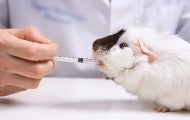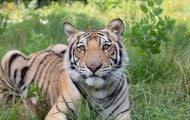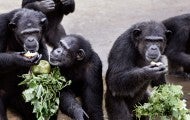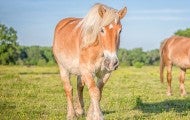At Black Beauty Ranch, titles like “caregiver” and “maintenance technician” don’t do the people who hold them justice, and they don’t capture the dozens of unique tasks the team carries out every day: figuring out how to get pine sap off a goat’s horn (rub it with peanut oil), learning how to “drag”...
Contents How many animals are used in experiments each year? Which animals are used in experiments? What kinds of experiments are animals used in? What kinds of institutions use animals in experiments? Where do laboratories get the animals they use in experiments? What is life like for animals in...
Minnow It makes sense that her best friends are turkeys. Minnow spent the first five months of her life on a dog meat farm in South Korea before she was rescued by Humane Society International in 2015 and adopted by Abbie Hubbard, who worked at a Virginia shelter where the rescued dogs were flown...
WASHINGTON—The National Academies of Science, Engineering and Medicine published a report yesterday analyzing the use of primates in experiments funded by the National Institutes of Health and examining “opportunities for new approach methodologies to complement or reduce reliance on NIH-supported...
When a young Jane Goodall entered the forests of Tanzania to study wild chimpanzees, neither she nor those supporting her work imagined the influence she would have. Today, Goodall—Ph.D., DBE, founder of the Jane Goodall Institute, and United Nations Messenger of Peace—is recognized not only as a...
BALTIMORE, Maryland—On Tuesday, a Maryland federal judge ruled that the National Institutes of Health cannot lawfully refuse to retire federally owned chimpanzees formerly used for research to Chimp Haven, the federal chimpanzee sanctuary. The decision was issued in a lawsuit brought by the Humane...
Today S.1298/A.1970, a bill to ban the crates used to cruelly confine mother pigs and calves raised for veal, passed the New Jersey state Senate. The bill is prime-sponsored by Senator Vin Gopal and Assemblyman Raj Mukherji and will now go to Gov. Murphy for his signature. The bill passed the state...
